
‘Locarno in summer is a safe bet’, says new festival director
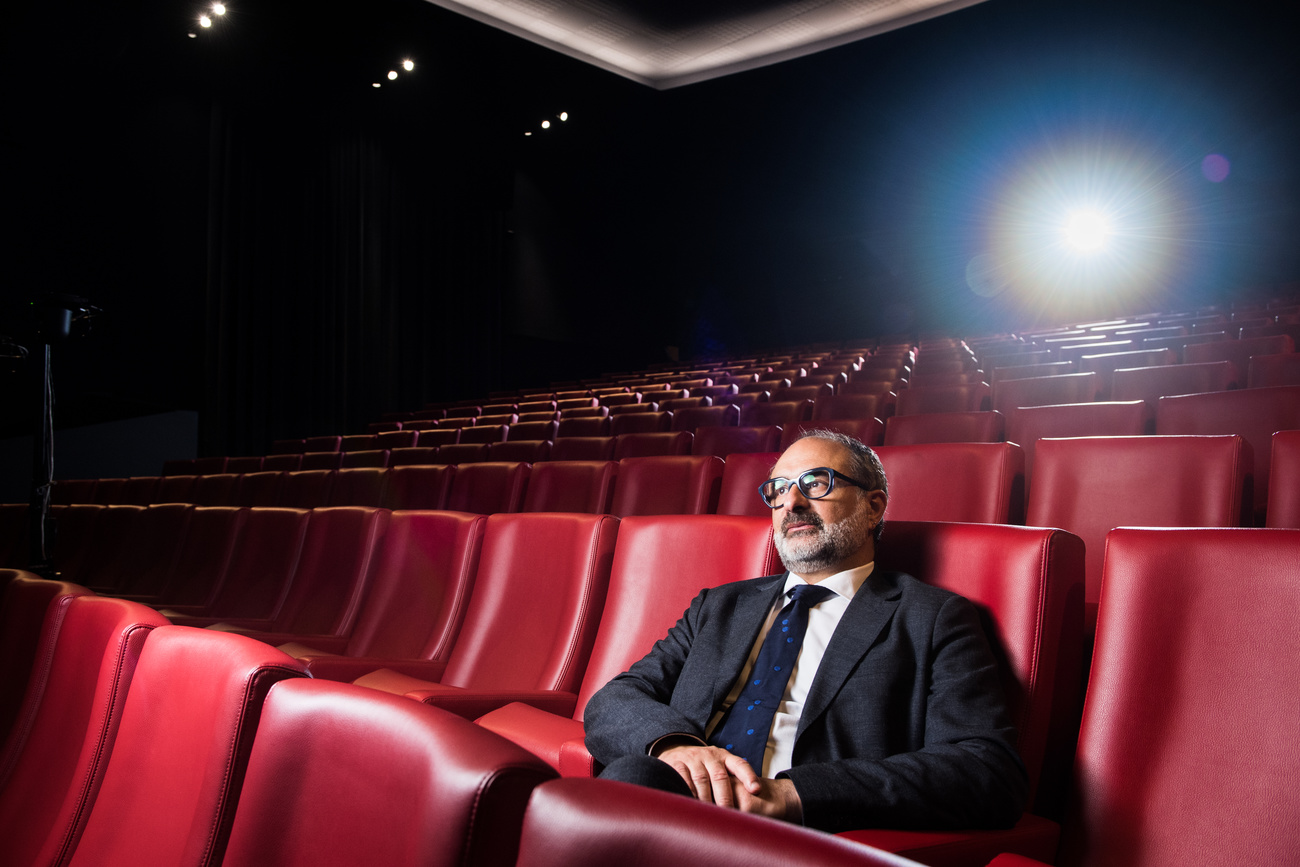
At the end of last year, Giona A. Nazzaro replaced Lili Hinstin as artistic director of the Locarno Film FestivalExternal link. The new position is always a challenge, even for seasoned programmers like Nazzaro, who cut his teeth on the festivals of Rotterdam and Venice, among others. The task is all the more daunting this year, as he also has to tackle the effects of the pandemic and the transformation of the film industry.
The Italian film critic and author Giona A. Nazzaro “welcomes” SWI swissinfo.ch remotely from his house in Rome. He speaks to us in English, though he is at ease in Italian, French, English and even in (perfect) Zurich German dialect. He can also dabble in Portuguese, learned through his passion for Brazilian marginal cinema of the 1960s and 70s. His father was an engineer at ABB in Zurich, where Nazzaro was born and grew up until his teenage years. But home for him is “in a movie theater, or beside my turntable, listening to my favourite records”.
A jazz lover who still likes to listen to the punk rock of his youth, Nazzaro is an omnivorous film fan – he has just bought a Blu-ray of Fast & FuriousExternal link to watch after our interview. Nazzaro takes action movies seriously. He has written several books on the subject that make him an authority on Hong Kong cinema and on director John Woo’s oeuvre.
As a film festival insider, Nazzaro plays the specialist and generalist at the same time. He confesses that he cries every time he watches a John Ford movie, but professionally, and considering how the digital form is shaping the way we watch movies today, he keeps his emotions at bay: “It is completely legitimate to miss the experience of the cinema theater if you are a normal spectator, but if you are working in culture and trying to understand what’s going on, nostalgia is not allowed, you have to be political. Political thinking means: how do you react to a situation? How do you understand it? If you look at the things that are happening now through the lenses of yesterday, you don’t get very far.”
As for the festival this year, planned for August 4th to 14th, Nazzaro expects to have it back in presential form. “Locarno in summer is a sure bet”, he says, “although we have to reckon with a 50% decrease in audience numbers because of travel restrictions”.
SWI swissinfo.ch: How do you decide on your program? Are you more concerned with a geographic panorama, or a thematic one?
Giona A. Nazzaro: My main objective is that I don’t want the audience to get bored; life is precious, and we don’t have time to waste. One of my other goals is to give the audience something that they have not already seen or experienced in other situations. I want to catch the audience off guard. I like to put myself in a position where I don’t know where I am. I try to stay clear of my assumptions, and keep my eyes open.
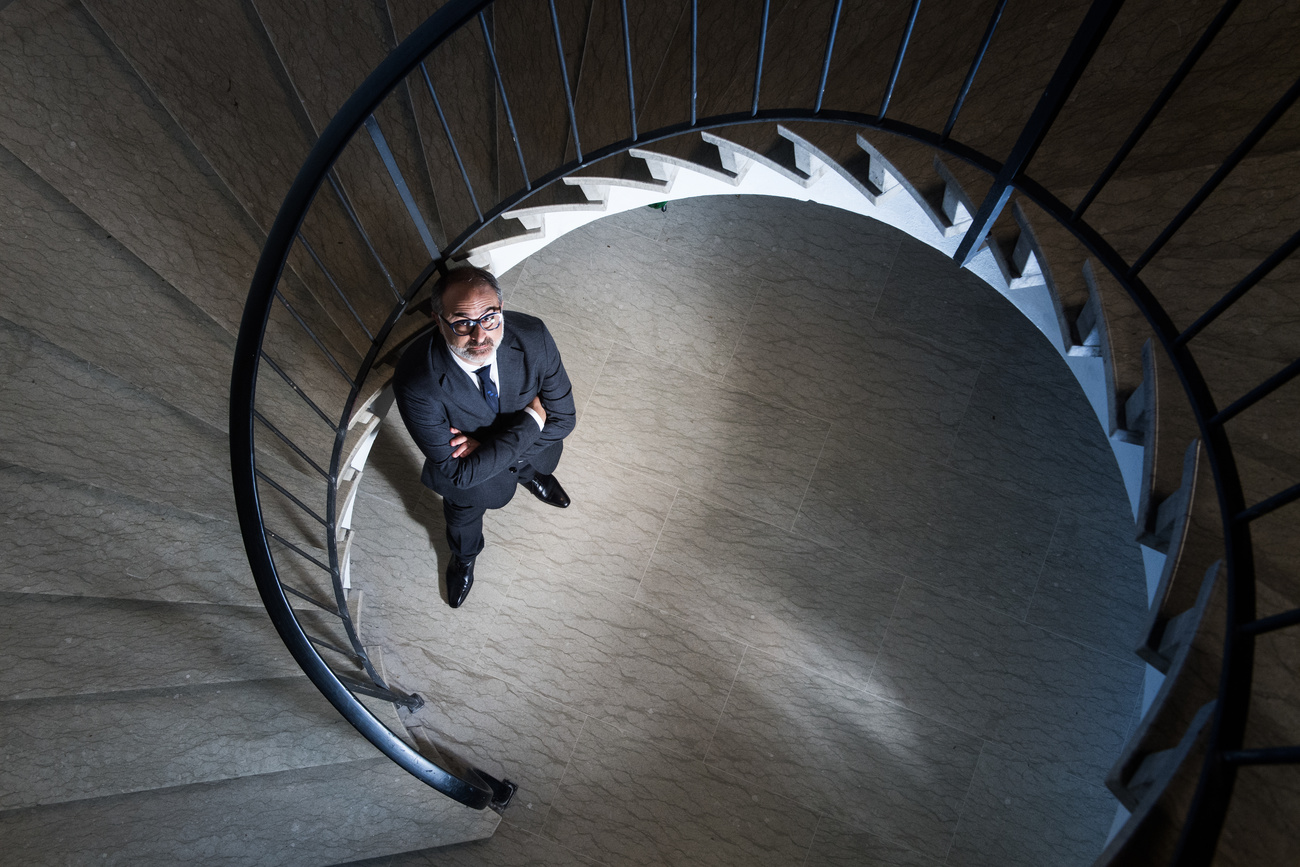
Giona A. Nazzaro, 55, became notorious on the festival circuit for his bold selections for Venice Critics’ Week, which he ran from 2016 to 2020, along with other roles with the Rome, Turin and Visions du Réel (Nyon, Switzerland) festivals. He is also a member of the artistic committee of the International Film Festival Rotterdam (Netherlands).
As an author, Nazzaro has published monographies on Gus Van Sant, Spike Lee, and Abel Ferrara, and is a pioneer in Italy in the study of Hong Kong cinema. His book Action – Forme di un transgenere cinematografico (Le mani, 2000) won the Barbaro/Filmcritica Prize. Nazzaro has also delved into fiction, with the novel “A Mon Dragone c’è il Diavolo” (The Devil is in Mon Dragone, Perdisa Pop, 2010).
SWI: What do you see when you observe the film scene today?
G.A.N.: Filmmakers today are quite different from filmmakers of yesterday, who were mostly cinéphiles and made films in a constant dialogue with the history of cinema. Today filmmakers can be people who haven’t seen that many films and have not gone to film school. They might have developed their interest in the industry through videogames or music. We are dealing with a generation of filmmakers who do not have a “past”, who are very instinctive, and who sometimes manage to re-invent [experimental filmmaker] Stan BrakhageExternal link, for instance, without even being familiar with his work.
This is extremely exciting and asks of us programmers to reinvent the way we work with images and ideas. It helps us to stay focused. The best thing is, there are always unpredictable surprises.
SWI: And how do you compare the industry with 30 years ago?
G.A.N.: I grew up with cinema and retrospectives, and the perception that cinema evolved in a linear way. Now in the digital age we are discovering that it can move in different directions at the same time and that it can address different issues in different languages. History is there, obviously, and it is still important to know [the works] of Raoul WalshExternal link or Howard HawksExternal link, but it would be pointless to remake their films. We need to understand who the filmmakers of today are. Who is making the meaningful works that speak to us in the same way that the films of Walsh and Hawks and John FordExternal link spoke to the people of their times?
This is the relationship that we need, a relationship of “necessity”; those films were necessary, they spoke to the countries that produced them. Walsh and Hawks and Ford to the US, for example, or [Roberto] RosselliniExternal link to Italy, when he “invented” NeorealismExternal link after the war and 20 years of fascism. With “Roma città aperta” (Rome, open city, 1945), Rosselini was saying: ‘this is how Italy pays for its sins’. Obviously, Italy didn’t want to see itself as Rosselini saw the country. Filmmakers are always better than the countries where they operate.
SWI: Do you think this is still valid with the filmmakers of today?
G.A.N.: We need to reinvent this kind of relationship with the filmmakers of today, and keep questioning why cinema is important for us now. It’s no secret that the first 100 years of cinema have been mostly male, white, heterosexual and Western. Today we need to find the right energies to make cinema more inclusive, so that the next 100 years of cinema will not again be white, heterosexual, Western and male. It’s pointless to have a conversation about the past if you don’t learn from it.
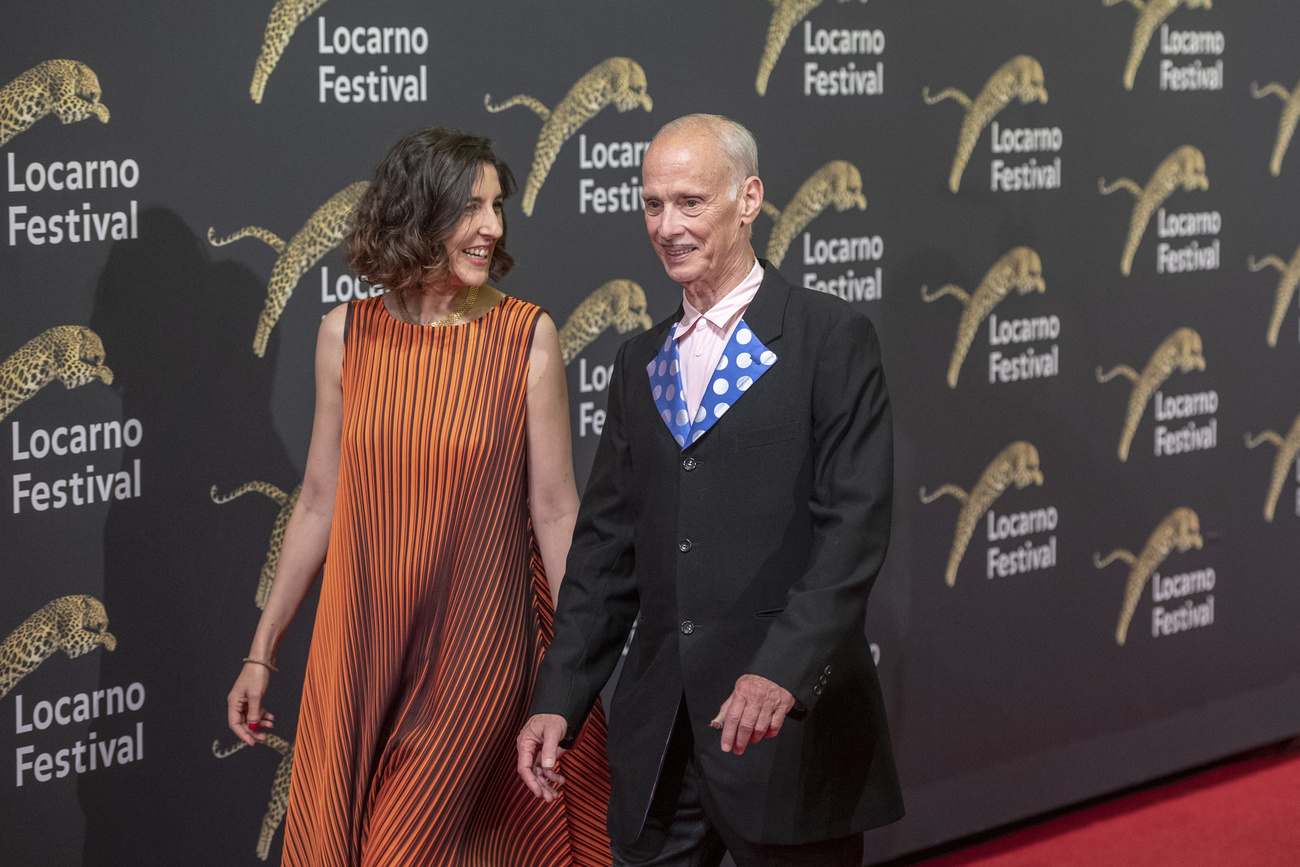
SWI: Looking at Locarno now, what are you keeping or taking out from the former director’s program?
G.A.N.: We are at the service of the Locarno Film Festival. It would be extremely arrogant to say, ‘I am going to change it’. Working at the service of the festival means: trying to understand where the cinema industry is going today. How is it reshaping the different energies and flows inside the industry? How do the different audiences interact with the transformations of our relationship to the images? How do the different audiences interact and talk to each other within the frame of the festival? It’s not about what I discard or what I keep. We have a totally unexplored and new situation.
SWI: You mean, because of the pandemic?
G.A.N.: The pandemic has reshaped a whole landscape [of the film industry] that we thought would never change. 2019 seems like ages ago. Back then, things went like this: as soon as Locarno was over, we went to [the festivals of] Venice then to Toronto. Then it was time for Sundance, and then we had to get ready for Berlin. That was the normal cycle; it was great, the industry had its flow. This is now completely irrelevant. Going back to normal is not an option, mainly because the overall changes of the last year and a half are here to stay. I look forward to the festival going back to real life, but the industry of cinema will certainly reorganize itself in order to understand where and how films can be seen, consumed, and produced in a new industry cycle that is still being reshaped.
SWI: How do you see this effort to reshape the industry so far?
G.A.N.: Today I read an article in Variety [film magazine]External link on how the expected blockbusters are going to reshape the theatrical window. A new Mission Impossible, for instance, released in summer, would sustain the whole summer and autumn period; until mid-October it would be screened everywhere. Nowadays cinema theatres plan a 45-day window almost as an exception before the film moves over to streaming platforms. Netflix, on the other hand, is investing in new productions, both films and series, in South Korea and several other countries. The whole industry is completely reshaping itself and it’s next to impossible to say what’s going to happen in the future because the future is happening all the time.
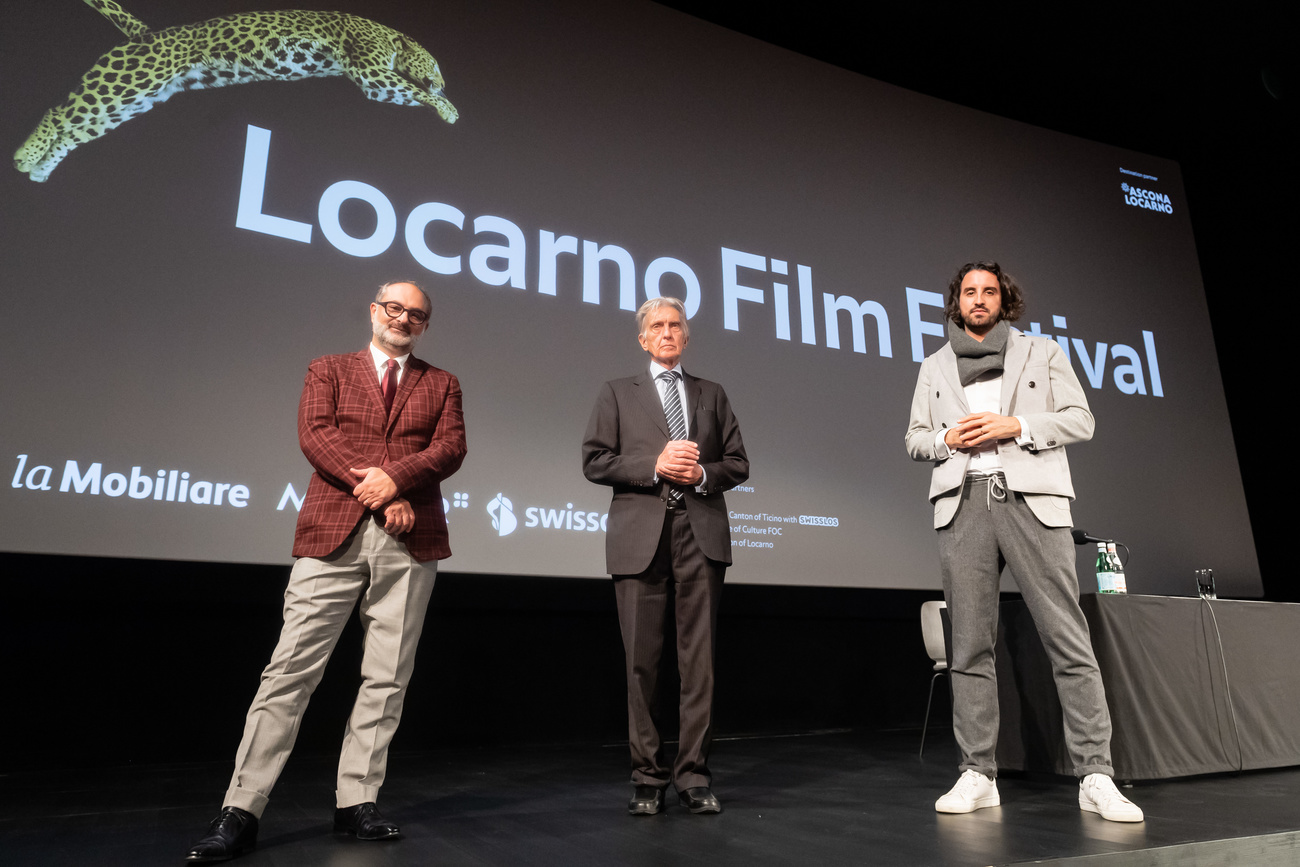
SWI: Some prestigious festivals, such as Cannes, have expressed serious reservations about films made by streaming platforms. Would you have a problem with including HBO or Netflix productions in your program?
G.A.N.: Absolutely not. I’m not oblivious to the fact that some of these streaming companies are distributors, sales companies, producers, and creators at the same time. Some of these companies challenge the jobs of the system as we have known it so far. I understand where the danger is, but change is going to happen regardless.
If I can choose where to see a film, it’s in the cinema. We support the people who work and make the cinema possible – distributors, sales agents that work with and support independent filmmakers. But as a festival director I have a duty to keep my eyes open because it’s too easy to say, ‘these people are destroying cinema’.
SWI: As you said, they are reshaping, not necessarily destroying. But is it for the best?
G.A.N.: The industry has always transformed continuously because cinema is an art that is subject to capitalism and the economy. It’s not something made inside a bottega, or an atelier in Renaissance times, where the artist worked alone on a marble statue or a painting. Quality doesn’t come only from one place. Is everything good on Netflix? No! But is everything good on cinema screens? Of course not. So the problem is about curating. This is the real challenge. You need to navigate all these different trends and new productions and stop and ask: what is really important here? It’s a complex choice because you’re not doing a program alone.
SWI: How do you evaluate the influence of the streaming platforms in the creation process ?
G.A.N.: Consider [Martin Scorsese’s] The IrishmanExternal link, produced by Netflix, for example. In a traditional studio system, this film would never see the day, and nor would the new Scorsese movie [Killers of the Flower MoonExternal link, now in pre-production; it will be an original Apple+ movie]. A film like Malcolm and Marie – black-and-white format portraying two actors closed in a room talking for two hours – would never be produced in a studio. And if it were, it would not reach the same number of people.
SWI: Because the studios work according to a commercial logic that tries to avoid risk…?
G.A.N.: Yes. And we can show the audience, as we will do this year, Alberto LattuadaExternal link’s work in a retrospective context. But if you want to know where cinema is going, you’ll have to watch the films in competition and the short films we have selected, because they represent the filmmakers of today. They maybe never heard of Alberto Lattuada or John Ford, but they are the people keeping cinema alive.
SWI: Where do you see the traps and dangers that may compromise or undermine a program?
G.A.N.: We have to avoid a situation where the festival has only one kind of offer. I think a festival can be a modulated place where you can show interesting North-American blockbusters, the best of European production, the new filmmakers making their first movies and others from different places of the world. You can bring all these energies together in a program that is meaningful to many different audiences. It’s not simple eclecticism, because the way cinema exists today is in a myriad of different possibilities. It’s not vertical, nor horizontal anymore, it is… rhizomic. That’s the word!

In compliance with the JTI standards
More: SWI swissinfo.ch certified by the Journalism Trust Initiative






























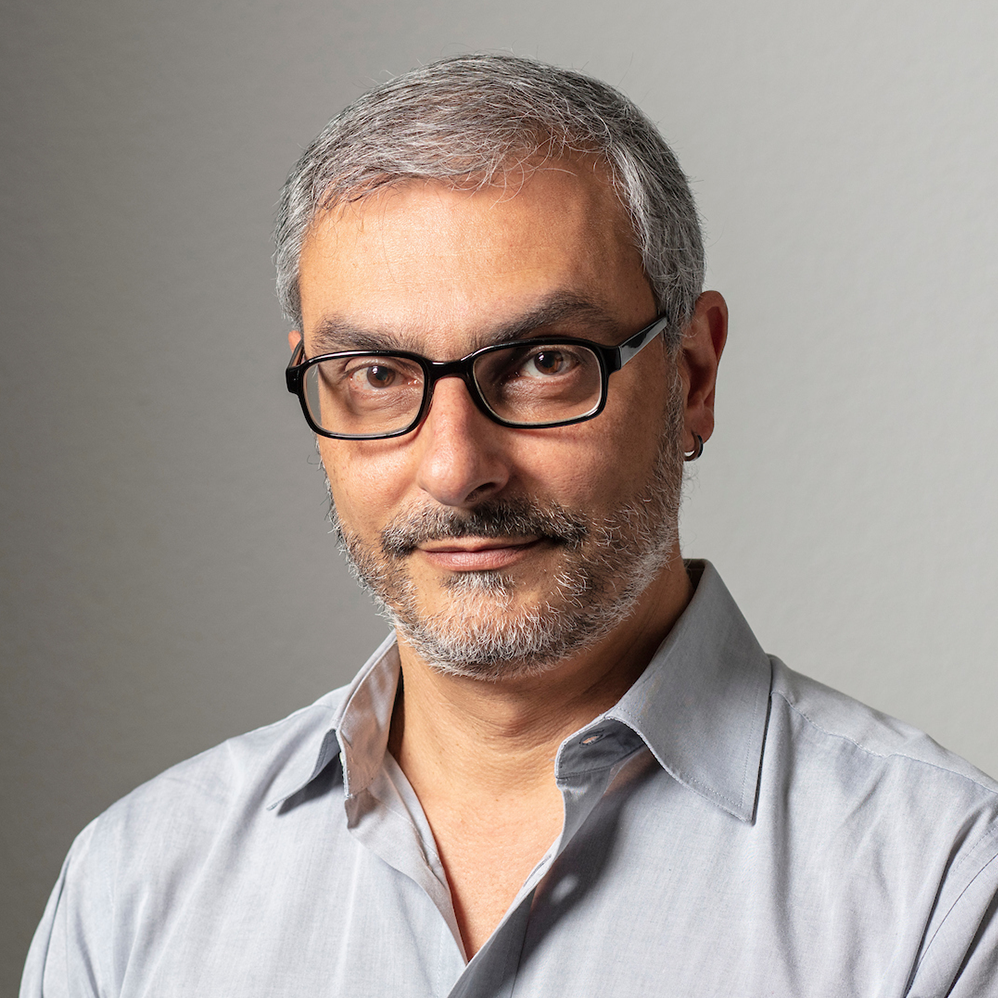
Join the conversation!